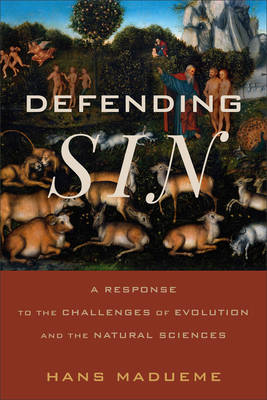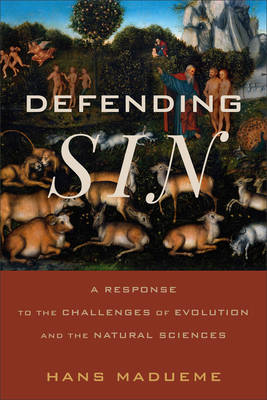
- Afhalen na 1 uur in een winkel met voorraad
- Gratis thuislevering in België vanaf € 30
- Ruim aanbod met 7 miljoen producten
- Afhalen na 1 uur in een winkel met voorraad
- Gratis thuislevering in België vanaf € 30
- Ruim aanbod met 7 miljoen producten
Zoeken
Defending Sin
A Response to the Challenges of Evolution and the Natural Sciences
Hans Madueme
Paperback | Engels
€ 41,95
+ 83 punten
Omschrijving
Southwestern Journal of Theology 2024 Book Award (Honorable Mention, Theological Studies)
The conflict between the natural sciences and Christian theology has been going on for centuries. Recent advances in the fields of evolutionary biology, behavioral genetics, and neuroscience have intensified this conflict, particularly in relation to origins, the fall, and sin. These debates are crucial to our understanding of human sinfulness and necessarily involve the doctrine of salvation. Theistic evolutionists have labored hard to resolve these tensions between science and faith, but Hans Madueme argues that the majority of their proposals do injustice both to biblical teaching and to long-standing doctrines held by the mainstream Christian tradition.
In this major contribution to the field of science and religion, Madueme demonstrates that the classical notion of sin reflected in Scripture, the creeds, and tradition offers the most compelling and theologically coherent account of the human condition. He answers pressing challenges from the physical sciences on both methodological and substantive levels. Scholars, pastors, students, and interested lay readers will profit from interacting with the arguments presented here.
The conflict between the natural sciences and Christian theology has been going on for centuries. Recent advances in the fields of evolutionary biology, behavioral genetics, and neuroscience have intensified this conflict, particularly in relation to origins, the fall, and sin. These debates are crucial to our understanding of human sinfulness and necessarily involve the doctrine of salvation. Theistic evolutionists have labored hard to resolve these tensions between science and faith, but Hans Madueme argues that the majority of their proposals do injustice both to biblical teaching and to long-standing doctrines held by the mainstream Christian tradition.
In this major contribution to the field of science and religion, Madueme demonstrates that the classical notion of sin reflected in Scripture, the creeds, and tradition offers the most compelling and theologically coherent account of the human condition. He answers pressing challenges from the physical sciences on both methodological and substantive levels. Scholars, pastors, students, and interested lay readers will profit from interacting with the arguments presented here.
Specificaties
Betrokkenen
- Auteur(s):
- Uitgeverij:
Inhoud
- Aantal bladzijden:
- 368
- Taal:
- Engels
Eigenschappen
- Productcode (EAN):
- 9780801098000
- Verschijningsdatum:
- 28/05/2024
- Uitvoering:
- Paperback
- Formaat:
- Trade paperback (VS)
- Afmetingen:
- 152 mm x 226 mm
- Gewicht:
- 521 g

Alleen bij Standaard Boekhandel
+ 83 punten op je klantenkaart van Standaard Boekhandel
Beoordelingen
We publiceren alleen reviews die voldoen aan de voorwaarden voor reviews. Bekijk onze voorwaarden voor reviews.








